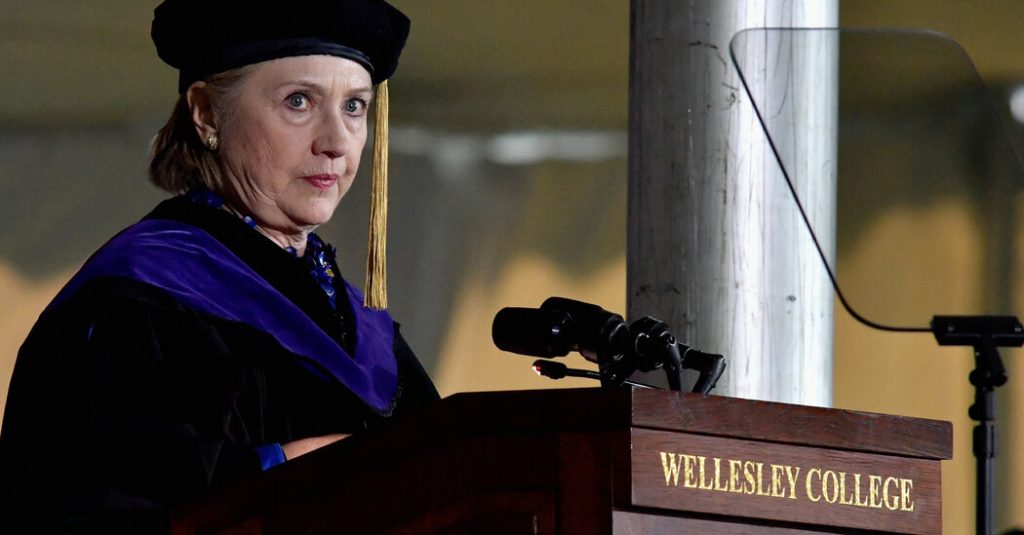Hillary Clinton returned to Wellesley College to celebrate the opening of a research center in her name, where she moderated a panel on “democracy at a crossroads,” while facing protests from students who raised objections to her legacy. Some students accused her of indifference to violence against Palestinians, leading to a heated exchange during the panel. Clinton has faced protests throughout her career, but Wellesley has been a safe space for her, although her reception on Saturday was mixed due to recent controversial statements she made regarding the Israel-Hamas conflict.
Protests against Clinton on campus were organized by students who criticized her stance on the Israel-Hamas war and her opposition to a cease-fire agreement. The demonstrations highlighted the shifting views of current Wellesley students, who have become more politically left-leaning since Clinton’s run for president eight years ago. Despite the protests, some students expressed appreciation for the critique, emphasizing that Clinton should not be idealized simply because she is a well-known alumna.
Tensions at Wellesley emerged following the Israel-Hamas war, with some Jewish students feeling marginalized by anti-Israel sentiments on campus. The college’s president refused to publicly state that criticism of Israel was not antisemitism, citing concerns about creating a hostile environment. However, student and faculty activism sought to create a space for open dialogue about these complex issues, with the goal of encouraging diverse perspectives and respectful debate.
The new Hillary Rodham Clinton Center for Citizenship, Leadership, and Democracy at Wellesley will focus on preparing the next generation of civic leaders and change-making citizens. The center hosted its inaugural summit, where panelists discussed critical global issues, and Mrs. Clinton expressed concern about recent regression in women’s rights worldwide. Despite the protests, many students expressed gratitude for Clinton’s advocacy work and hoped for peace in the region for both Israelis and Palestinians.
Faculty members at Wellesley acknowledge the importance of student activism and protest as part of a broader conversation on global issues. They hope to foster an environment where students can use their voices while also being open to different perspectives. Pride in Mrs. Clinton endures among students, even as it becomes more nuanced and complex. Overall, the protests at Wellesley reflect the diverse and engaged student body, grappling with complex issues and seeking ways to effect positive change in the world.


